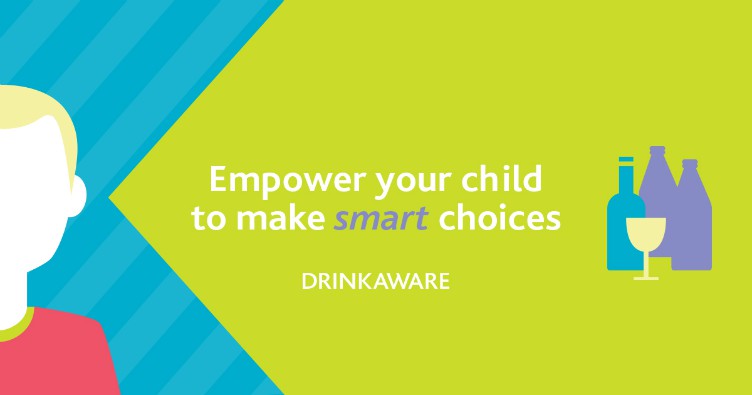A new report commissioned by Drinkaware has revealed that 95% of Junior Cert students learn more about alcohol from their parents than any other source. The new research, carried out by Behaviour and Attitudes, was conducted with 200 Junior Cert students from across Ireland in order to identify the main contributory and influencing factors on young people’s attitudes towards alcohol. Ahead of the State exams drawing to a close in the coming week, Drinkaware is appealing to parents to talk openly and honestly to their children about alcohol at this high-risk time.
Key findings from the research:
- 95% of students learn about alcohol use from their parents
- 97% stated that they would be more likely to follow parental advice and rules about alcohol than their peer’s advice
- 93% of Junior Cert students are seeking out ways to learn about how to stay safe and alcohol free
- While parents and family members ranked as the highest influence on young people, secondary school teachers are also a key influence, with 89% of students saying they learned about alcohol use and risks from a teacher
- Young people’s perceived knowledge about the use of alcohol is weakest among boys (60% stating they know some or not at all about alcohol use)
- Alcohol use ranked high on a list of concerns among students, with 68% of students saying it is an issue of concern to them
- 91% of students want to learn about alternatives to alcohol for young people
- 70% were unaware that 1 in 5 adults do NOT drink alcohol, and 62% were not aware of the definition of binge drinking.
Ms Yvonne Rossiter, Interim Chief Executive Officer, Drinkaware said:
“At Drinkaware, we are regularly contacted by parents who worry that friends and peers have more influence on when their child will drink alcohol but this just isn’t the case. This important research shows that all family members, and in particular parents, have been shown to be the single strongest influence on their child’s attitudes towards alcohol. While it is important to note that not every teenager will drink alcohol, we simply cannot ignore the reality which is that young Irish people are not only drinking at a younger age than many of their European peers, they are more likely to binge drink when they do. Irish teenage girls now drink as much alcohol as boys, a trend uncommon in other parts of the world. This is without knowing the true cost to their health and well-being. We cannot afford to underestimate the association between underage alcohol use and alcohol-related problems later in life.”
Drinkaware has the following advice for parents and guardians about how to have that conversation with their child if they are celebrating the end of the Junior or Leaving Cert:
- Don’t wait for an alcohol-related incident to happen; talk to children early and often.
- Talk openly about their plans: Who is going? Where is it? How will they get home? Will alcohol be available? When is the curfew?
- Set rules for the night together: You should both be fully aware of your rules in relation to alcohol. What are the consequences for breaking the rules?
- Engage with other parents: Talk to the parents of your child’s friends and ensure you are familiar with their rules about alcohol.
- Safety is key: Remind your child that they can call or text you if they feel unsafe or unwell at any point during the night.
- Provide an alternative to a night out: Could you host a party in your home? If so, remember that it is illegal to serve alcohol to minors and parental supply of alcohol is associated with increased risks.
“The post-exam celebrations do not have to be synonymous with the now expected reports about drunken teenagers spilling out of nightclubs across the country. We simply should not accept that the two go hand in hand. We should not presume that young people will drink to excess. Far from it, young people are telling us that they are looking for alternatives to alcohol and now it’s time we listened to them and gave them the kind of practical knowledge and advice they can apply to stay safe and be healthy”, Ms Rossiter concluded.
ARE YOU A PARENT?
For parents who would like to talk to their children about alcohol and its effects, see the dedicated and comprehensive parents’ section of our website. Here you will find evidence-led and age-appropriate information and a range of interactive tools and resources to help initiate and guide this important conversation.


